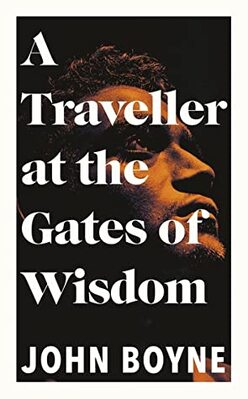| From his birth of the night King Herod’s men slaughter baby boys, we follow the unnamed narrator through multiple incarnations across numerous countries to election night in North America and the unlikely presidency of Donald Trump. Scorned by his soldier father, bullied by his beefy brother, betrayed by his beloved cousin, he survives to be thrice widowed, imprisoned for murder and to make a success of a creative career. Braving war, slavery, colonialism, he finds temporary respite in monasteries Christian and Buddhist, and fathers a son who will send a rocket to the moon. |
In a novel that encompasses almost everything, themes of sexuality and gender inequalities loom large. The narrator’s tenderness, and his passion for projects traditionally the female province, means he’ll never earn his father’s approval, while his sister, who fits the masculine stereotype perfectly, is ignored, destined for motherhood and marriage to men she would not choose. Meanwhile, same-sex couplings, while officially non-existent and often invisible to the narrator, crop up again and again. (Must remember this for LGBT history month in February.)
I’m a great fan of John Boyne’s fiction[1], but it’s not exempt from my metaphorical red pen. Some form of the phrase expressions … on their faces cropped up in several chapters, which would have been irritating even without the redundant on their faces. Although there’s probably humour from the beginning, I didn’t note it until the narrator meets Shakespeare about three quarters of the way through. But as we approached the twentieth century, the humour seemed to get sillier[2], although I enjoyed the in-joke about Maude Avery, the fictional novelist from one of his previous novels[3]. Thanks to publishers Doubleday for my review copy.
[1] See my review of A History of Loneliness and of the others listed here:
[2] Much as I enjoyed it overall, I had a similar criticism of The Heart's Invisible Furies
[3] One of Maude's books also adorns the shelves in A Ladder to the Sky























 RSS Feed
RSS Feed





















